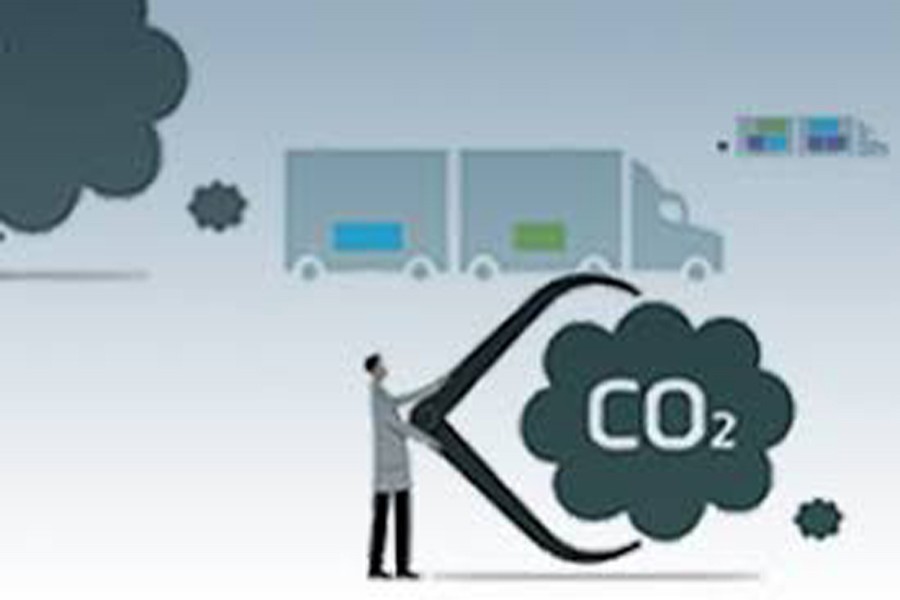President Donald Trump blamed countries like India, China and Russia for not doing enough on climate change and justified America's withdrawal from the Paris Climate Agreement 2015. During President Trump's visit to the United Kingdom in early June 2019, he was speaking to media on climate change issues. He said that he believed there were changes in weather and the changes were on both sides. President Trump has been a long time climate sceptic. Earlier he accused climate scientists of having 'political agenda' and called climate change a 'hoax'. However, the president later retracted that statement.
The Intergovernmental Panel on Climate Change (IPCC), an expert group of over two thousand leading climate scientists of the world including those from Russia, United States and other countries have been revealing data and information indicating that the CO2 and other Green House Gas (GHG) concentration in the atmosphere of the earth has reached 400 parts per million (ppm) in 2015. Such a concentration of CO2 is well above of the maximum levels for the atmosphere of the past 10,000 years. The rapid increase of GHG in the atmosphere has direct relation for creating Green House Effect resulting in increased global temperature, climate change, flooding, sea level rise and other natural disasters. IPCC has been stating that increased GHG emission due to human economic and industrial activities, fossil fuel burning and deforestation has contributed the most to the growth of GHG concentration in the atmosphere over the past 50-100 years. The Austria based Institute for Economics and Peace (IEP) reports that nearly a billion people of the world live in areas at high risk for global warming and about 40 per cent of them are in the countries already struggling with conflicts. As per the observation of the IEP, limited resource brings competition among the larger population in the climate vulnerable regions which may lead to conflicts as climate change further diminishes the resources. The World Resources Institute (WRI) considers it appropriate to include climate change as a factor in conflict risk as the environmental degradation largely influenced by climate change causes hunger, famine, shortages of clean water, human displacement combined with human migration and conflicts.
Russian President Vladimir Putin in mid July 2018 made a statement saying, 'climate change was not caused by human activity'. He further said that 'the warming started by the 1930's … when there were no such anthropological factors, such emissions, and warming had already started.' Therefore, he added, 'the issue is not stopping it….because that's impossible, since it could be tied to some global cyclones on earth of planetary significance. The issue is to somehow adapt to it.' Earlier, Russia reported that the country had 'exceeded' its obligations under Kyoto Protocol. Russia has been advocating for a legally binding climate change agreement based on UN Frame Work of Climate Change.
Nearly 200 countries including the Russian Federation signed the Paris Agreement in 2015 which declared that the members (signatory countries) take the responsibility to limit causes for global warming to 'well below 2 degree Celsius'. Russia is a major fossil fuel producer accounting for nearly 5 per cent of global GHG emissions, and so far, the country remains in the list of the largest 12 polluters and at the same time signatories that have not ratified the Paris Climate Agreement.
Russia has been facing significant impacts due to global warming as per government data. The country's scientists and emergency service officials have indicated that disasters such as devastating floods and forest fires are influenced by climate change. As per published reports, in January 2019 that the Russian government has been working on the Paris Climate deal ratification in its parliament. The Russian business groups who previously backed go slow policies for ratification of the Paris Climate Agreement 2015, have now shifted their positions. The European Commission last year indicated that 'it would priorities countries in trade negotiations that had supported the Paris Climate Agreement 2015'. Media reports further suggest that the Russian Union of Industrialists and Entrepreneurs (RSPP) wrote to the Russian Environment ministry in January this year that 'Russian producers are interested in ratification as the absence of national obligations and state regulation of activities to combat climate change may serve as a pretext for imposing economic restrictions on Russian companies. Ultimately such restrictions, if imposed, will increase cost of productions and also lead to a loss of competitiveness.
Published reports further suggest that the Russian ministry of Economic Development has prepared a draft legislation which allows the government authority to introduce GHG emission targets for companies and impose charges who will exceed the targets. The draft legislation has been under consultation with different stakeholders and government ministries and is expected to be finalised for approval within June 2019. President Putin is trying to convince the industries to invest more into the low carbon technology and for modernisation of Russia.
Mushfiqur Rahman is a mining engineer and writes on energy and environment issues.


